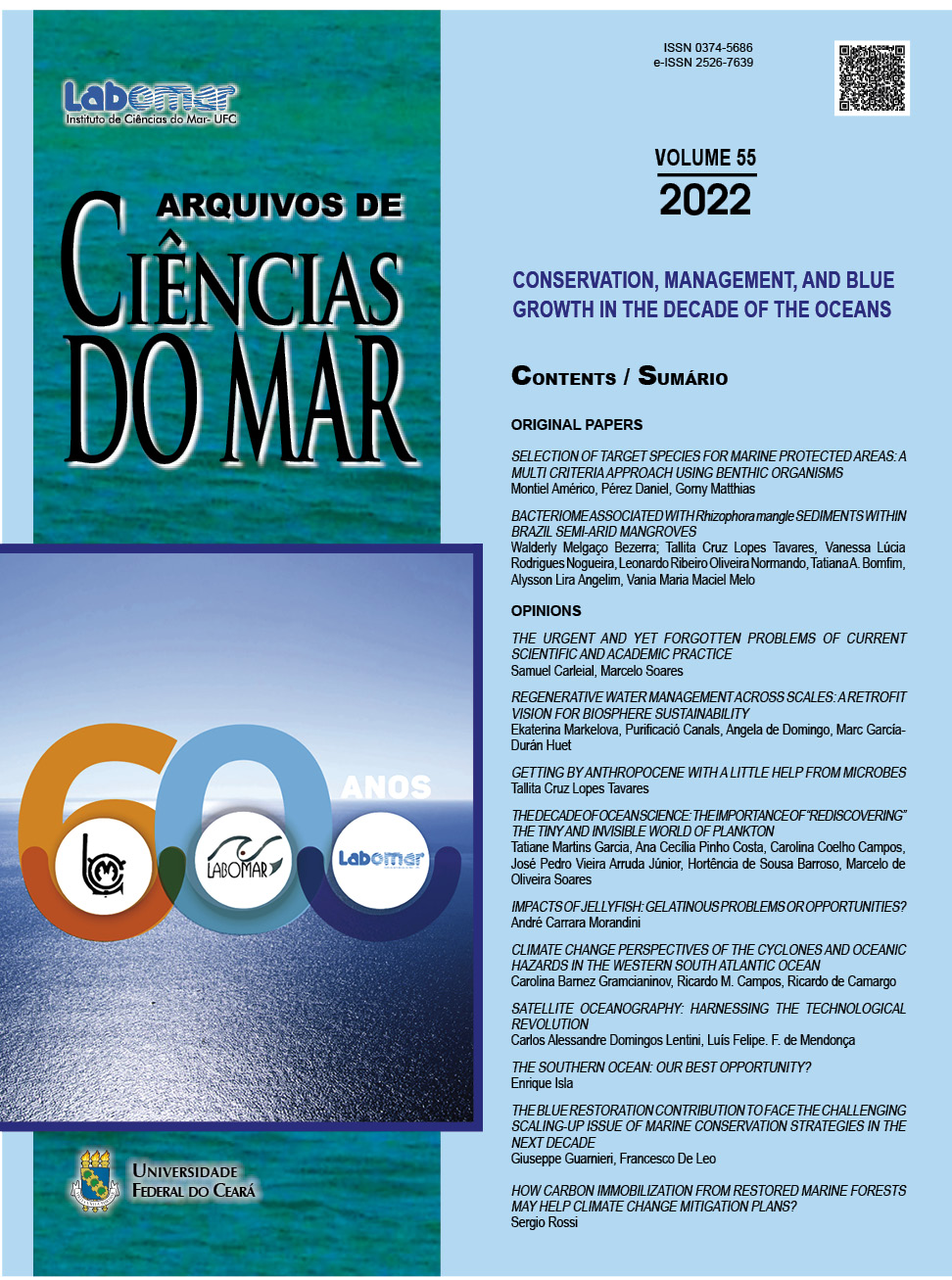BACTERIOME ASSOCIATED WITH Rhizophora mangle SEDIMENTS WITHIN BRAZIL SEMI-ARID MANGROVES
Bacteriomas associados aos sedimentos de Rhizophora mangle em manguezais semiáridos do Brasil
DOI:
https://doi.org/10.32360/acmar.v55iEspecial.78512Resumen
Microorganisms play important roles in nutrient cycling in mangrove ecosystems and knowledge on the plant/microorganism association is essential to better understand the functioning of this environment. Rhizophora mangle is the dominant tree species within Brazilian mangroves and little information is available on the microbiota associated with this plant species. In this context, the aim of this study was to survey the taxonomic diversity of bacteria in the R. mangle root zones in mangroves within the semi-arid region of Northeast Brazil submitted to different human disturbances, intending to determine the bacterial
fingerprint associated with this habitat. The total DNA extracted from sediments of different mangroves was pooled and used for construction of 16S rDNA cloning libraries, which resulted in 663 sequences with an average size of 809 bp. All mangroves were rich in different phyla of the Bacteria domain, with Acidobacteria, Bacteroidetes, Chloroflexi, and Proteobacteria being detected in all locations. Proteobacteria was dominant in all mangroves, and it was mainly represented by Alpha, Delta, and Gammaproteobacteria. The greatest richness was found in the Timonha river mangrove, with 13 phyla, a location considered more preserved compared to other mangroves. The lowest richness was found in Ceará river mangrove, with only seven phyla. This mangrove is threatened by intense urbanization. The results clearly showed that the taxonomic diversity of bacteria from mangroves subjected to intense urbanization have decreased, highlighting the risks of these changes for the functioning of important microbe-mediated processes and related ecosystem services.
Keywords: brazilian mangroves, semi-arid, Rhizophora mangle, rRNA 16S, clone library.
Descargas
Publicado
Número
Sección
Licencia
1. Proposta de Política para Periódicos de Acesso Livre
Autores que publicam nesta revista concordam com os seguintes termos:
- Autores mantém os direitos autorais e concedem à revista o direito de primeira publicação, com o trabalho simultaneamente licenciado sob a Licença Creative Commons Attribution que permite o compartilhamento do trabalho com reconhecimento da autoria e publicação inicial nesta revista.
- Autores têm autorização para assumir contratos adicionais separadamente, para distribuição não-exclusiva da versão do trabalho publicada nesta revista (ex.: publicar em repositório institucional ou como capítulo de livro), com reconhecimento de autoria e publicação inicial nesta revista.
- Autores têm permissão e são estimulados a publicar e distribuir seu trabalho online (ex.: em repositórios institucionais ou na sua página pessoal) a qualquer ponto antes ou durante o processo editorial, já que isso pode gerar alterações produtivas, bem como aumentar o impacto e a citação do trabalho publicado (Veja O Efeito do Acesso Livre).

